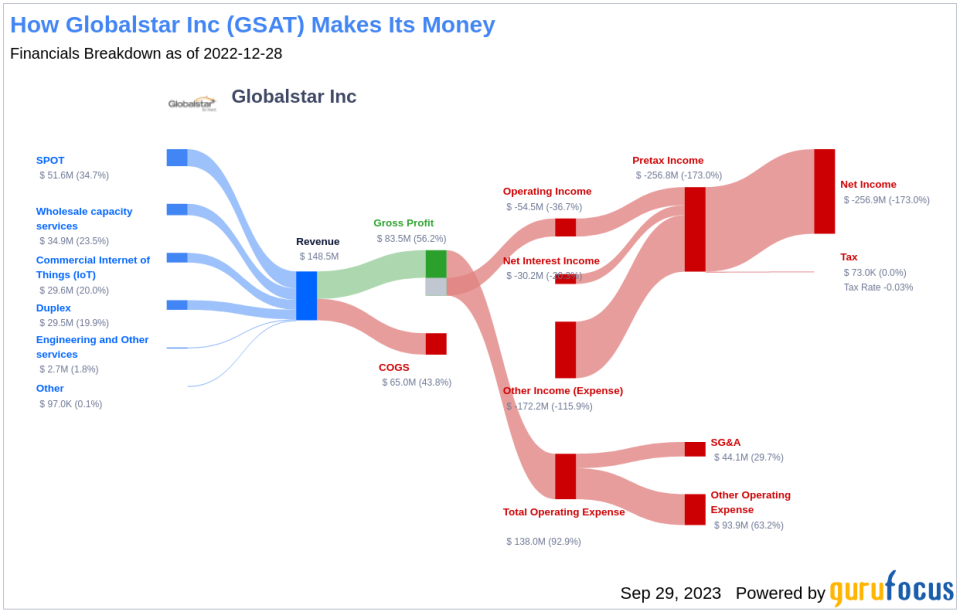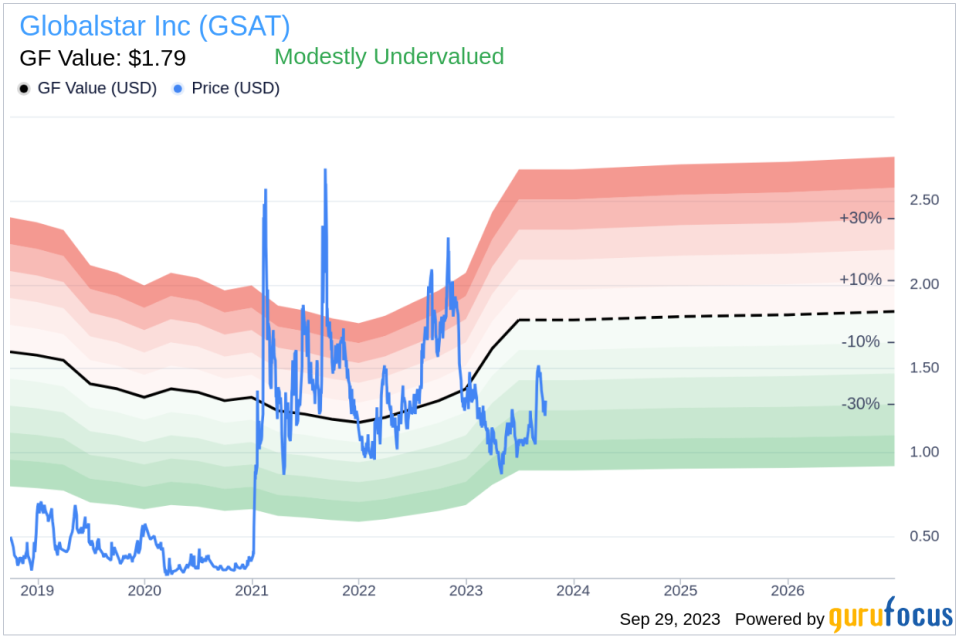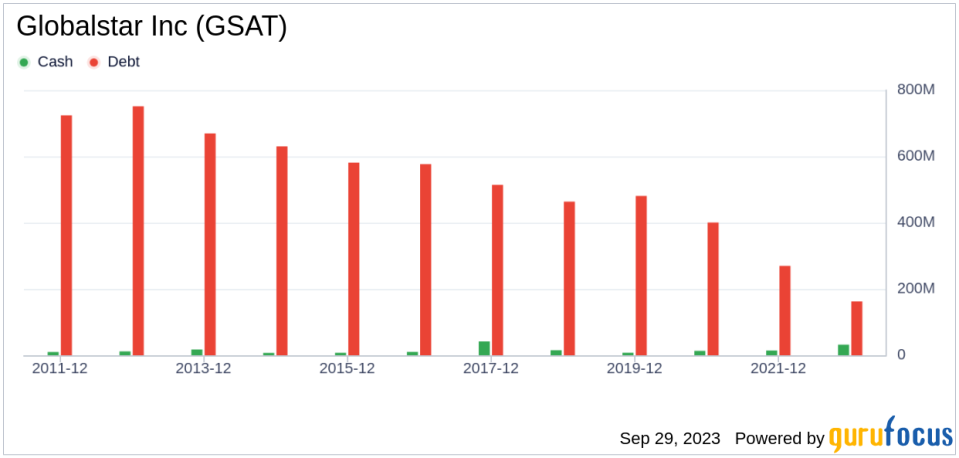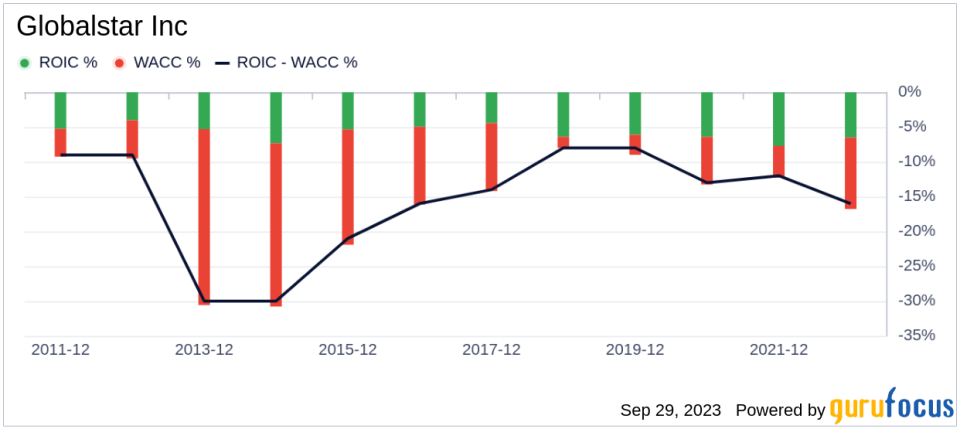Unveiling Globalstar (GSAT)'s Value: Is It Really Priced Right? A Comprehensive Guide
Globalstar Inc (GSAT) has recently shown a daily gain of 6.5%, with a three-month gain of 25.96%. However, it reported a Loss Per Share of $0.12. This raises the question: is the stock modestly undervalued? This article aims to answer this question by analyzing Globalstar's valuation and financial health. We invite you to read on for a comprehensive understanding of Globalstar's current market position.
Company Overview
Globalstar Inc is a leading telecommunications company, primarily generating revenue from mobile satellite services. These services are predominantly used where terrestrial wireline and wireless communications networks are impaired or non-existent. Globalstar offers two-way voice and data transmission services, as well as one-way data transmission, using mobile or fixed devices. The company owns significant satellite assets and generates the majority of its revenue within the United States. Considering its current price of $1.31 per share, Globalstar's stock appears to be modestly undervalued based on our analysis.
Understanding the GF Value
The GF Value is a proprietary measure that represents the current intrinsic value of a stock. It is calculated based on historical trading multiples, a GuruFocus adjustment factor based on past returns and growth, and future business performance estimates. The GF Value Line provides an overview of the fair value at which the stock should ideally be traded. If the stock price is significantly above the GF Value Line, it is overvalued and its future return is likely to be poor. On the other hand, if it is significantly below the GF Value Line, its future return will likely be higher.
According to our valuation method, Globalstar's stock appears to be modestly undervalued. This suggests that the long-term return of its stock is likely to be higher than its business growth.
Link: These companies may deliver higher future returns at reduced risk.
Assessing Financial Strength
Investing in companies with poor financial strength has a higher risk of permanent capital loss. It is crucial to review a company's financial strength before deciding to buy its stock. A great starting point for understanding a company's financial strength is to look at the cash-to-debt ratio and interest coverage. Globalstar has a cash-to-debt ratio of 0.18, which is worse than 61.79% of 390 companies in the Telecommunication Services industry. This indicates that Globalstar's financial strength is poor.
Profitability and Growth
Investing in profitable companies poses less risk, especially those demonstrating consistent profitability over the long term. Globalstar has been profitable 2 over the past 10 years. Over the past twelve months, the company had a revenue of $192.70 million and Loss Per Share of $0.12. Its operating margin is -10.46%, which ranks worse than 88.24% of 391 companies in the Telecommunication Services industry. This indicates poor profitability.
Growth is a crucial factor in a company's valuation. A faster-growing company creates more value for shareholders, especially if the growth is profitable. Globalstar's 3-year average annual revenue growth is 0.8%, which ranks worse than 62.96% of 378 companies in the Telecommunication Services industry. The 3-year average EBITDA growth rate is 3.2%, which ranks worse than 53.43% of 335 companies in the Telecommunication Services industry.
ROIC vs WACC
Comparing a company's return on invested capital (ROIC) to its weighted average cost of capital (WACC) can also evaluate its profitability. ROIC measures how well a company generates cash flow relative to the capital it has invested in its business. WACC is the rate that a company is expected to pay on average to all its security holders to finance its assets. If the ROIC exceeds the WACC, the company is likely creating value for its shareholders. During the past 12 months, Globalstar's ROIC was -2.33 while its WACC came in at 9.23.
Conclusion
In conclusion, Globalstar's stock appears to be modestly undervalued. However, the company's financial condition is poor, and its profitability is also poor. Its growth ranks worse than 53.43% of 335 companies in the Telecommunication Services industry. To learn more about Globalstar's stock, you can check out its 30-Year Financials here.
To find out high-quality companies that may deliver above-average returns, please check out GuruFocus High Quality Low Capex Screener.
This article first appeared on GuruFocus.




